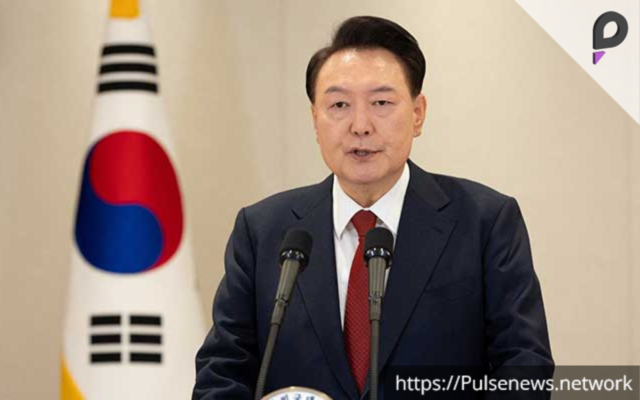Seoul: South Korea’s President Yoon Suk Yeol is at the center of a political storm after his declaration of martial law, a controversial move he defended as necessary to preserve democracy. In a televised address, Yoon vowed to stand his ground, stating, “I will fight to the end,” even as impeachment efforts intensify.
Defending Democracy or Crossing the Line?
Yoon justified the martial law declaration as a legal measure to counter what he termed the opposition’s “parliamentary dictatorship” and prevent the collapse of democracy. Critics, however, accuse him of insurrection and undermining democratic norms.
“I will not evade my legal and political responsibilities,” Yoon said, rejecting calls to resign. His martial law declaration on December 3 plunged the nation into turmoil, with lawmakers blocking the order within hours and sparking nationwide protests.
Impeachment and Investigations
The opposition-led parliament is pushing for Yoon’s removal, planning weekly impeachment votes until he is ousted. Their latest motion is set for a vote on Saturday.
Last week, the impeachment of two key officials, police chief Cho Ji-ho and justice minister Park Sung-jae, escalated tensions. While presidential impeachment requires a two-thirds majority in the 300-member National Assembly, other officials can be impeached with a simple majority of 150 votes.
If the impeachment motion passes, South Korea’s Constitutional Court would hold a trial. A two-thirds ruling in favor of impeachment would permanently remove Yoon from office.
Martial Law Fallout
The martial law announcement sparked widespread protests and investigations into Yoon and his allies, who are now banned from leaving the country. Demonstrators have called for Yoon’s resignation, accusing his administration of overstepping its authority.
In his defense, Yoon alleged that North Korea sympathizers were attempting to destabilize his government. Although he rescinded the martial law order, the consequences are still unfolding. Yoon’s presidential office was searched, and he is now facing charges of insurrection and treason.
Political Division and Party Struggles
The ruling People Power Party (PPP) under Yoon’s leadership is experiencing significant internal turmoil. After the unsuccessful impeachment attempt, floor leader Choo Kyung-ho stepped down, and Yoon loyalist Kwon Seong-dong was chosen as his successor. Party leader Han Dong-hoon has urged members to support Yoon’s impeachment, signaling fractures within the party.
The president’s term has been plagued by legislative gridlock since the opposition won a landslide victory in the April general election, leaving Yoon unable to pass key laws.
A Nation on Edge
South Korea remains in political and social turmoil. Massive protests and strikes have continued, while tensions between lawmakers and citizens grow. The public outcry has been further fueled by reports of former defense minister Kim Yong-hyun’s attempted suicide while in detention for his role in the martial law declaration.
What Lies Ahead?
As South Korea’s parliament prepares for another impeachment vote, the nation waits to see whether Yoon will be removed or remain in office. The Constitutional Court will play a critical role in determining the outcome of this unprecedented crisis.
This political upheaval underscores the fragility of democratic institutions and the challenges of governance in a deeply divided nation.











